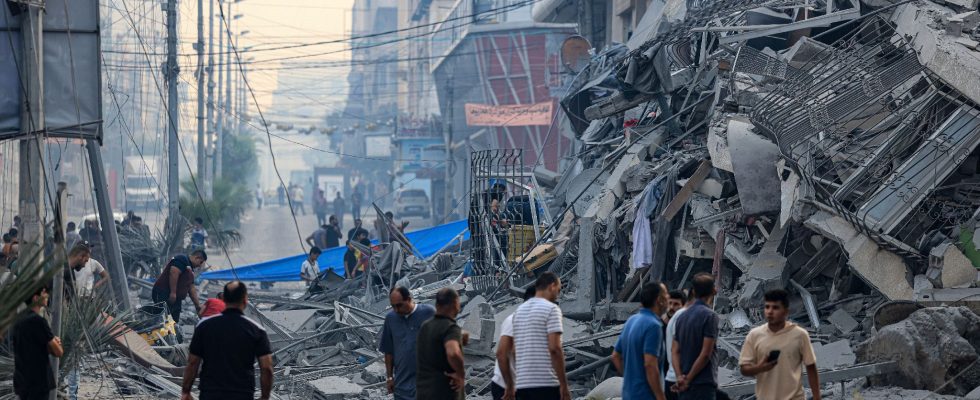Twenty-four hours after the incursion of hundreds of Hamas fighters into its territory, Israel officially declared itself at war on Sunday, October 8, immediately launching a campaign of airstrikes on the Gaza Strip, with more than 200 victims in a few hours. The objective was to target the operational bases of the Palestinian armed group, which had undoubtedly anticipated this first Israeli response. The response, however, is only just beginning. “This unprecedented attack in the history of our country requires us to respond without precedent,” relays Lieutenant Masha Michelson, spokesperson for the Israeli army. This Monday, Defense Minister Yoav Gallant announced the imposition of a “complete siege” on this territory where some 2.3 million Palestinians live. “No electricity, no water, no gas.”
Towards a long-term confit
Prime Minister Benjamin Netanyahu has already asked his 9 million citizens to prepare for “a long war”. The hypothesis of a ground offensive on the Gaza Strip is taking on more substance every hour, despite the terrible human consequences that such an operation would generate in the area. “We are not going to wage a six-day war, we are going for the long term, recognizes Kobi Michael, specialist in defense issues at the Institute for National Security Studies in Tel Aviv. The objective will be to ensure the control of the territory of the Gaza Strip to install an alternative to Hamas in power. The Israeli population knows that it will be difficult, but that we have no choice: the other option would mean the end of the State of Israel . We will win in the end.”
In the summer of 2014, during Operation Protective Edge which targeted Hamas and Islamic Jihad, an Israeli army memo was conveniently leaked to the press, detailing the risks of a ground offensive in Gaza. According to military intelligence, such an operation would take five years, result in a catastrophic human toll and endanger peace agreements with Egypt and other Arab countries in the region.
Benyamin Netanyahu knows these consequences and has until now always refused this scenario, favoring the status quo. This time, it will be difficult, if not impossible, for him to resist popular pressure. “Netanyahu has always resisted this impasse, but this time, national trauma, pressure from his ministers and political reasons are pushing him in this direction,” said Hugh Lovatt, Middle East specialist at the European Council on International Relations. The Israeli army will indeed eliminate many members of Hamas, but eradicating the movement will be very hard. And even if it succeeds, what to do the day after? Restore direct Israeli control over the Gaza Strip, which would create even more political and security problems? Bringing the Palestinian Authority back on the back of an Israeli tank? No scenario is realistic.”
